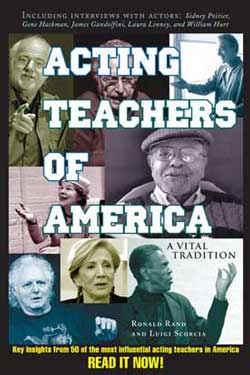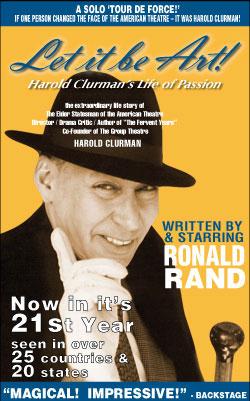Olympia Dukakis
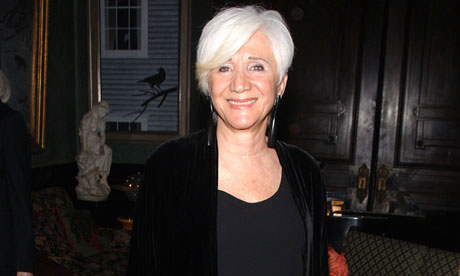
Began her career in the theatre, receiving an Obie Award in 1963 for her performance Off-Broadway in Brecht’s “Man Equals Man.” On Broadway she has appeared in “Rose,” “Who’s Who in Hell,” and “Social Security.” Ms. Dukakis’ TV and film includes Anna Madrigal in the “Tales of the City,” “Search for Tomorrow,” “Steel Magnolias,” “Mr. Holland’s Opus,” Jane Austen’s Mafia!,” “The Thing About my Folks,” “Moonstruck,” as Dolly Sinatra in the mini-series of Frank Sinatra’s life, “3 Needles,” as Charlotte Kiszko in “A life for a Life,” “The Librarian: Return to King Solomon’s Mines,” “In the Land of Women,” “Away from Her,” and starred in and executive-produced “Montana Amazon.” She provided the voice of Grandpa’s love interest for “The Simpsons” episode, “The Old Man and the Key.” Ms. Dukakis wrote her bestselling autobiography, “Ask Me Again Tomorrow: A Life in Progress. She recently directed the world premiere production of Todd Logan's “Botanic Garden” at Victory Gardens Theatre in Chicago. In 2008, Ms. Dukakis appeared in the revival of Tennessee Williams’ “The Milk Train Doesn’t Stop Here Anymore” opposite Kevin Anderson at Hartford Stage. She also co-adapted and starred in the world-premiere of “Another Side of the Island, based on “The Tempest”, at Alpine Theatre Project in Whitefish, Montana. Ms. Dukakis was honored with the 2,498th star on the Hollywood Walk of Fame, and has received the Academy Award for Best Supporting Actress, Golden Globe award, LA Film Critics Association Award, and nominations for an Emmy Award, NY Film Critics Circle Award, American Comedy Award, British Academy TV Award, Seattle International Film Festival Award, Satellite Award, SAG Award, Genie Award, BAFTA Award, and received the Grand Jury Award.
in The Milk Tain Doesn't Stop Here Anymore
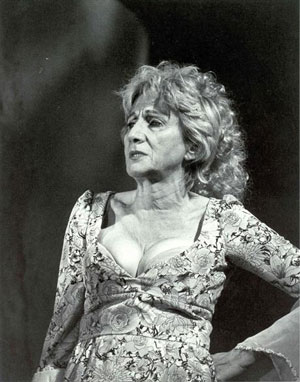 When you began to work in the theater, were there other actresses and actors whose work
When you began to work in the theater, were there other actresses and actors whose work
inspired you?
Yes! Florence Eldridge (who appeared on Broadway in “Long Day’s Journey into
Night”), Maureen Stapleton, Geraldine Fitzgerald. Many other Italian, French and British
actresses.
You have said: “To be open-hearted, you have to trust, or be willing to trust – but trust
with open eyes. You have to look at the reality of things. Sometimes there’s darkness and pain.
That’s part of life, too.” Why does the art of acting demand so much discipline, honesty and
courage?
Anything else is too difficult.
You’ve spent a great deal of your life working on the classics, including the Greeks,
Chekhov, Ibsen and other great writers. Why was that important to you?
They shook the rafters!
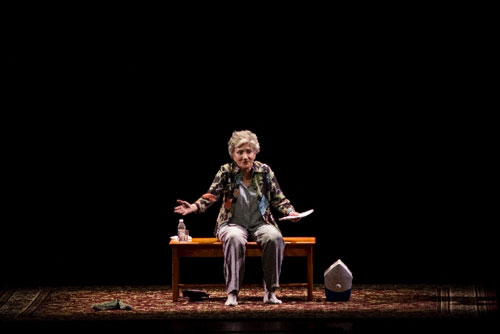
in Rose
In 1992, you co-created “Voices of Earth,” a non-profit theater company to help women explore your spiritual heritage and birth your own spiritual transformation. Why did you need to do this?
Because I was raised and shaped by a Patriarchal society and culture.
Why did you take on the challenge of performing the one-woman show, “Rose” on Broadway?
To see if I could do it. Also, I had it in me to put myself in challenging
situations. Though, mostly to see if I could do it.
What has given you the greatest joy in creating art in the theater, in film and television?
Knowing myself and what it is to be human.



